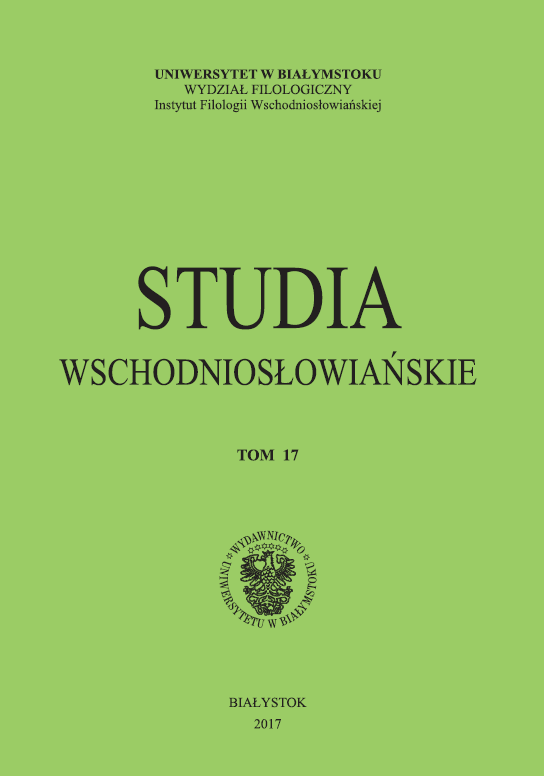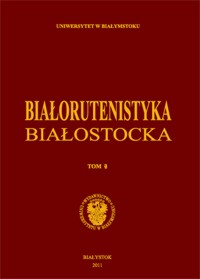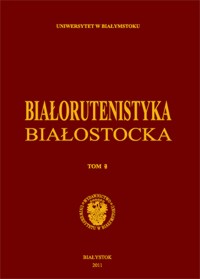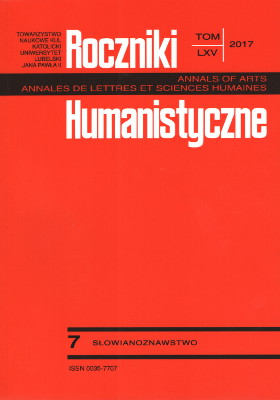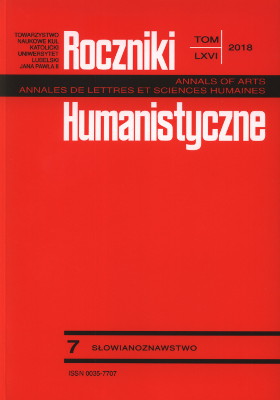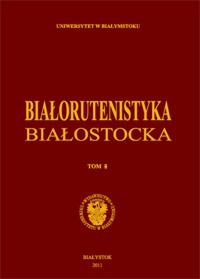
Стылістыка дапасаваных азначэнняу у Прадмове Васіля Цяпінскага
The article analyzes frequency and stylistic functions of the concordant attributes in famous text of the Old Belarusian literature of the second half of the 16th c. – the preface of the Belarusian Protestant Basil Tyapinsky, dedicated to the Gospel translated and printed by him. The conclusion of the analyses is that the rhetorical devices examined in the article reflect a speech style of the preface and some oral techniques of its author.
More...
